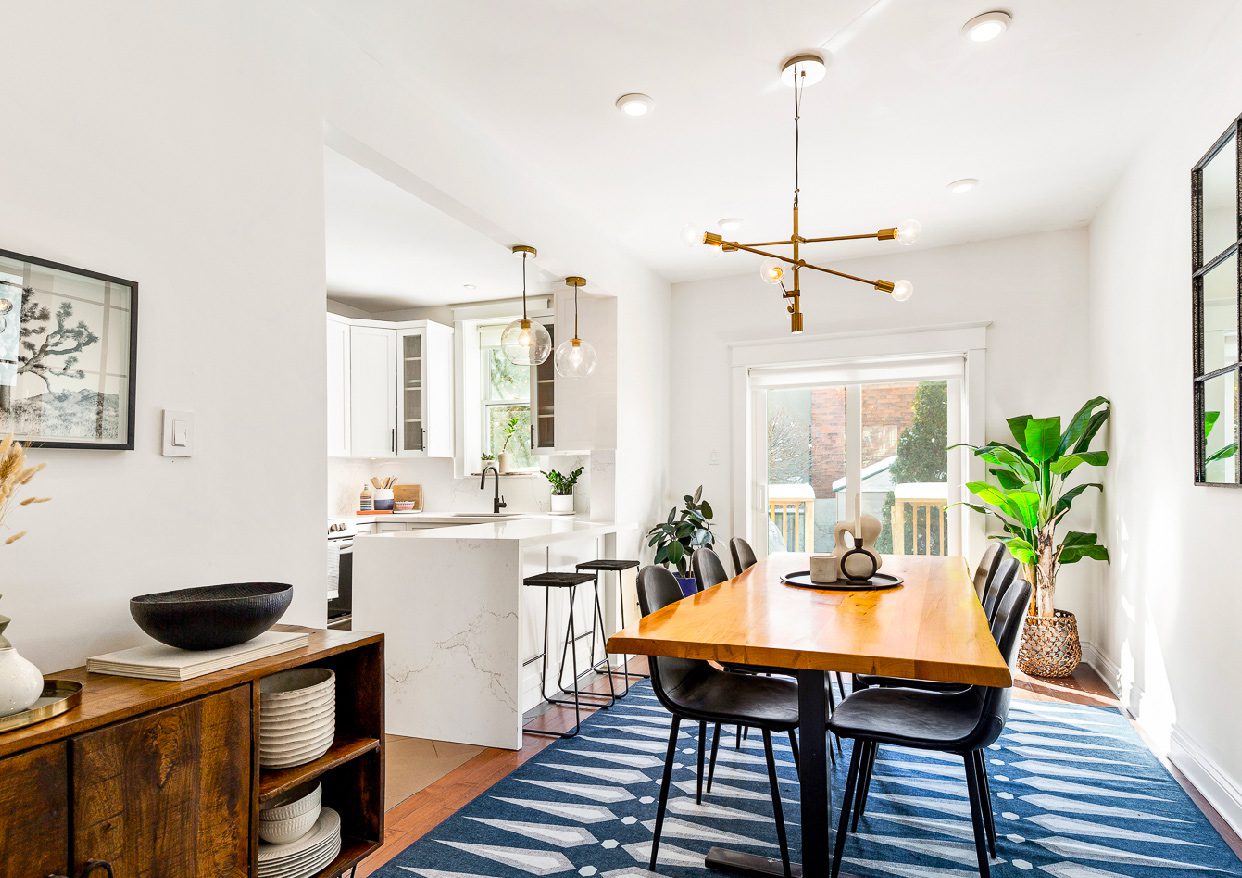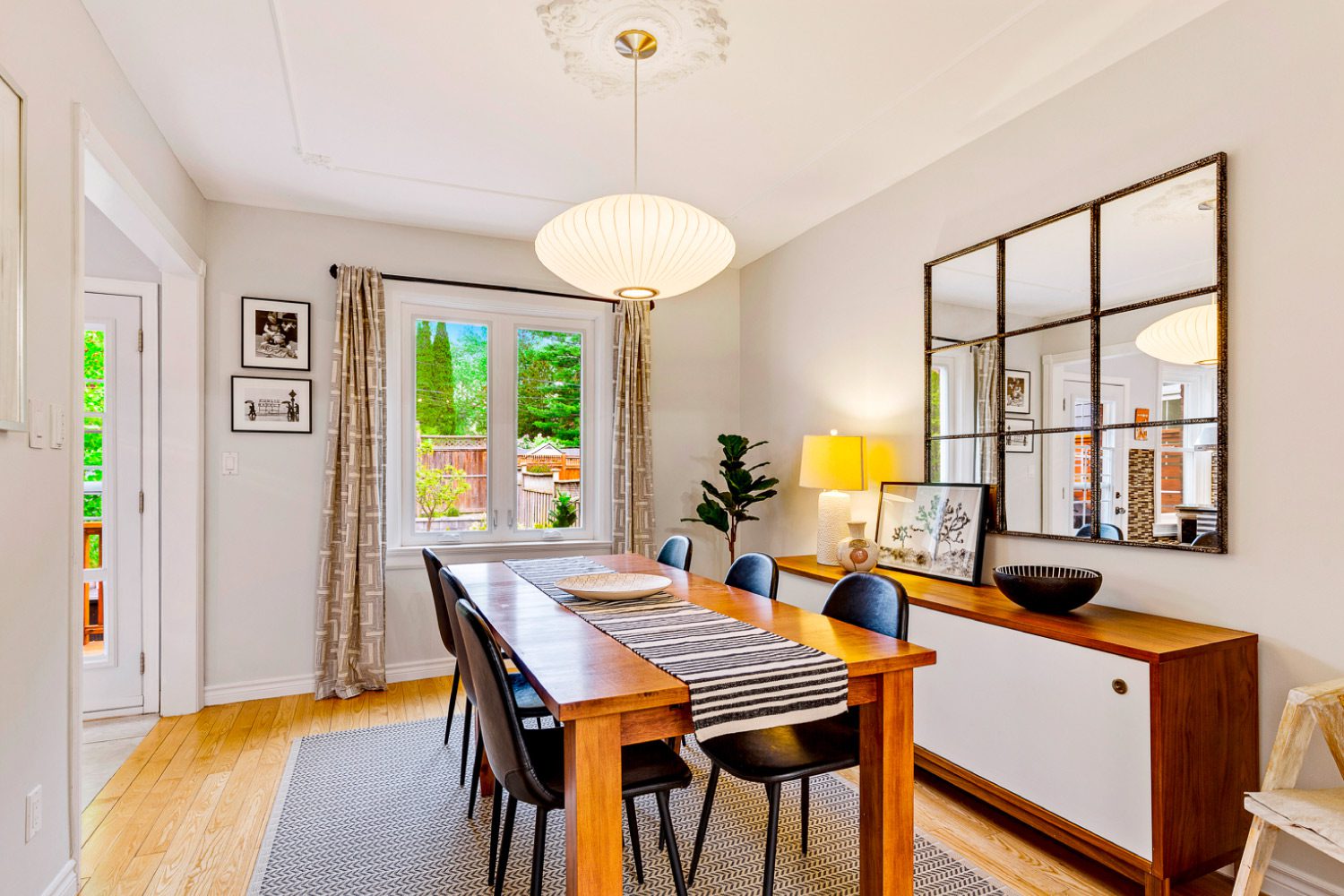November 7, 2024 | Selling
How Long Should You Live in a House Before Selling It?
Think of selling a home like harvesting a garden—you’ve got to give it time to grow before reaping the rewards. It’s a major financial decision, and timing matters, especially when it comes to maximizing your return on investment. Knowing how long to stay in a home before putting it back on the market can significantly impact your financial outcome, helping you to build equity, recoup costs, and ultimately maximize your return on investment. The answer is rarely one-size-fits-all, but staying in a property for at least 7–10 years tends to be a common guideline for homeowners looking to achieve the best financial outcome. But as with most things in real estate, it’s not always that simple.
Here’s a breakdown of why this timeframe typically works and what to consider before making a move.
Building Equity
The first and most important reason to stay put for at least 7–10 years is to build equity. In the initial years of your mortgage, a larger portion of your monthly payments goes toward interest rather than the principal. By around the 7–10 year mark, you’ll have built a significant amount of equity in the home, allowing for a stronger financial position when you’re ready to sell.
Additionally, real estate prices tend to appreciate gradually over time. By giving your property the opportunity to rise in value, you increase the likelihood of walking away with a profit after covering expenses like real estate commissions, legal fees, moving costs, and any improvements you made to enhance the property.
Quick Tip: Staying for this period can also help you ride out potential market fluctuations and allows equity to build over time. Staying put allows you to weather the ups and downs of real estate market shifts —and avoid paying hefty fees on a quick turnaround.
Selling your home can be a stressful experience. But knowledge is power knowing what to expect can help make the process fun! Here are a few more blogs you might like to read next:
- How to Declutter Your Home When Selling
- What Every Home Seller Should Know About Open Permits
- What’s the Fastest Way to Sell Your Home?
Market Fluctuations
The real estate market moves in cycles, influenced by factors like interest rates, economic growth, and demand for housing in specific areas. Real estate moves in cycles, and selling during a high point (or avoiding a low one) could make a big difference in your net gain. If the market was hot when you bought, your home’s value may have climbed; if things have cooled, it might pay to wait until conditions pick back up. Trying to time the market perfectly is challenging, but understanding these fluctuations can help you make a well-informed decision about when to sell.
Key Tip: Avoid making decisions based solely on market hype or panic. Remember, even in a down market, updated or renovated homes in high demand locations tend to hold value better and sell faster. Even in a cooler market, a well-maintained, move-in-ready home will always be desirable. It’s all about making the best of market timing while maximizing your home’s appeal.
Want to stay up-to-date with all the latest market news? Sign up for our newsletter right here. We share market insights, community news, listings, design inspo, and more!
Renovations & Improvements
If you’ve poured a little elbow grease into your home—maybe you revamped the kitchen, added a deck, or turned the yard into a functional and attractive entertaining area—you’re doing more than just personalizing your space. These upgrades add value and make your home shine in the eyes of potential buyers. In cooler markets, homes that are move-in-ready with quality finishes and a little extra charm stand out, often attracting more interest and command better prices. By improving your home over the years, you increase its appeal and could justify a higher asking price when the time is right to sell.
Takeaway: Before listing, take stock of what you’ve added. Even the smaller updates—a fresh coat of paint, new lighting, or built-in storage—can make a big difference in how buyers see your home. Your realtor can help suggest easy updates that maximize your home’s value and can go a long way in boosting that bottom line!
Analyzing Point of Entry
When you bought your home, the market conditions likely influenced your purchase price. If you entered the market during a high-demand, low-supply phase, you likely paid a premium and it would not be to your advantage to sell in a down market. On the other hand, if you bought during a downturn or in a buyer’s market, you may see more appreciation if the market you are planning to sell in has picked up.
Understanding the market you made you home purchase in, can help you determine how much value your property has gained. Has the neighbourhood grown in popularity? Are there upcoming developments that could boost your property’s value? Sometimes, it’s external economic forces that drive up market demand, leading to an increase in your home’s value. These factors can all influence whether selling now—or waiting—makes the most sense.
Pro Tip: Research similar properties in your area to gauge how the market has evolved since your purchase. This can help you assess whether selling now will provide the return you’re hoping for.
Get more selling tips and answers to your questions with these posts next:
- Should You Sell Your House During a Divorce?
- What to Expect When Your Home Hits the Market
- How to Handle Buyer Feedback the Right Way
Lot Size, Location, and Unique Features
Unique property features can both positively and negatively impact a home’s appeal. Certain quirks—like a small irregularly shaped lot, proximity to high-traffic areas, or no parking—may limit the number of interested buyers. In a seller’s market, these details might not be deal-breakers, but in a down market, they can become significant hurdles.
Waiting out a slow market may be a wise choice if your home has features that could be challenging to overcome. In a sluggish market, unique features—like an extra-large lot, a new garage, or convenient parking—can make your home stand out and sell faster, even while others sit unsold. It’s all about how the features aligns with current market demand.
Tip: If your property has features that might limit its appeal—such as an unusual layout, an irregular lot shape, or no parking—waiting for the market to improve could be a smart move. In a stronger market, buyers are often more flexible and open to unique aspects, allowing your property to stand out and be appreciated for its distinct character. Holding off until demand picks up can make it easier to attract interested buyers who see value beyond the quirks.
Make sure your home stands out to buyers. Read our post on how to go about it right here.
Factoring in the Price of Moving
Selling a home isn’t just about setting a price and finding a buyer. Numerous costs come with the sale process, including agent commissions, lawyers fees, and land transfer tax. Together, these can eat into your profits significantly if you haven’t owned the property long enough to offset them with equity growth.
Moving itself can be costly, whether you’re upgrading to a larger home or relocating to a new area. From moving companies to the potential need for new furnishings, these expenses add up quickly. Staying in your home longer reduces the likelihood of paying these expenses repeatedly, allowing you to benefit from the value appreciation more fully when you do decide to sell.
Still have questions? We’ve got you covered! Here are some more blogs you might like:
- How to Sell Your Home in the Age of Online Marketing
- How Long Does it Take to Sell a House in Toronto?
- Everything You Need to Know About Buying and Selling During the School Year
Take it Personal
While financial considerations are crucial, personal factors also matter. Why Are You Thinking of Selling? Are you selling to relocate for a job? Is your family growing, making more space essential? Or are you looking to downsize? Personal goals can sometimes outweigh market factors, making it worthwhile to move even if the timing isn’t ideal financially.
Consider how much these personal motivations matter to you, and weigh them against the potential financial benefits of waiting to sell. If staying a few extra years aligns with your goals and doesn’t impose undue hardship, the payoff may be worth it in the long run. In some cases buying and selling in the same market, even if it is a down one, makes sense to move forward with the goals of your family.
In real estate, a little patience can go a long way. The “7–10 year rule” isn’t carved in stone, but it’s a solid guide for most homeowners. Stick it out, and you’ll likely build up equity, wait out any market bumps, and maybe even have time to make some upgrades that boost your home’s appeal. Weighing things like market conditions, any improvements you’ve made, unique features of your property, and your personal goals can help you time your sale wisely. Whether you hang on for a few more years or feel ready to list now, knowing these factors means you’re setting yourself up for the best outcome.
Selling isn’t just a financial decision; it’s an emotional one, too. By staying focused on your goals and looking at both market trends and personal needs, you can make the most of your investment. Whatever you decide, make sure it’s a choice that benefits you, both now and down the road!
If you’re ready to sell your home and want to ensure it moves quickly and at the best possible price, reach out to us at 416-909-1602 or email us at hello@getnested.ca. Let’s get started on your journey to a successful sale today!

Our West End Expertise
We know West Toronto like the back of our hands. From real estate to restaurants to neighbourhoods, we have the intel you need to know. Learn more about our local expertise here.







